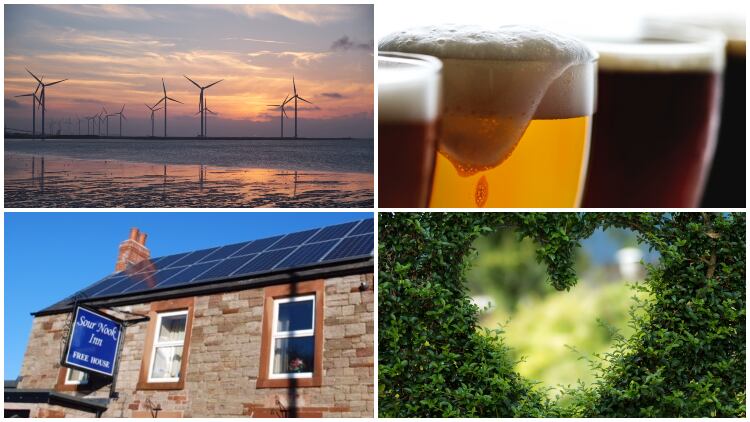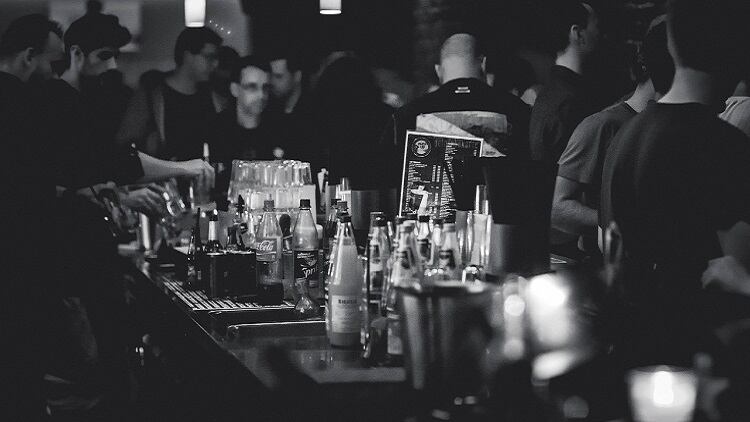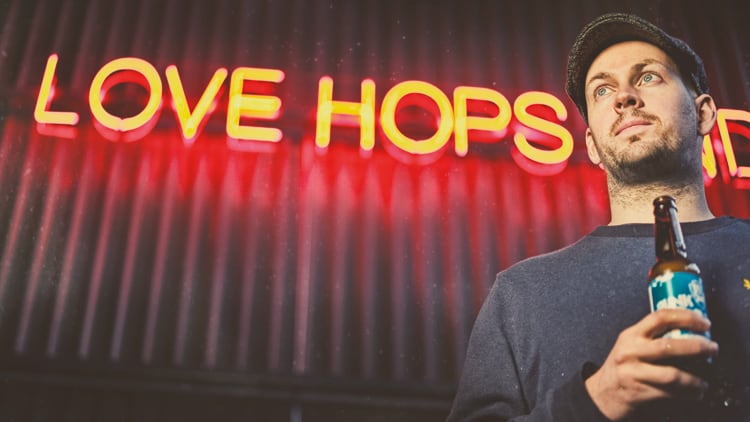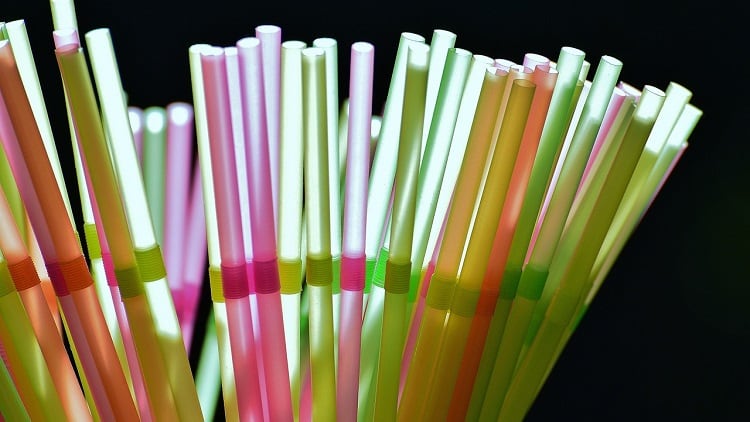Meeting energy efficiency standards
Fleurets senior associate Andrew Whelan reveals: “With regards to energy efficiency over recent years, the authorities have pushed through regulations such as energy performance certificates (EPC) and the new minimum energy efficiency standards.
“An obvious example of a successful energy-efficient measure is LED lighting, for which benefits and savings when compared with cost of installation has been proven worthwhile.
“Lighting usage savings in excess of 70% is not uncommon and an additional benefit is a significant improvement to the EPC rating of the building.
“However, the major energy cost for most businesses is related to space heating.
“This is less straightforward because, in order to fund the replacement of space heating, significant capital is required.”
The carbon footprint of the UK’s hospitality industry is equivalent to that of Costa Rica, a country with a population of around 5m people, according to Sustainable Restaurants Association head of membership Ylva Johannesson.
However, she argues that the industry is acutely aware of its environmental impact and is taking steps to curtail it.
“There’s no question that the Attenborough effect is being felt across the industry,” Johannesson explains. “It started with straws – try asking for a plastic one now in any self respecting pub...
“With legislation expected shortly to ban plastic straws, the ripple is spreading out to other single-use plastic items and a wider appreciation of businesses’ wider environmental impact.
“As well as reducing meat and food waste, pubs and restaurants can focus on their energy use – valuing natural resources more.
“A combination of staff engagement, tech, measuring and monitoring is a well-tried and tested formula.”
Johannesson highlights the work of JD Wetherspoon, currently trialling schemes to generate their own electricity on site – with solar panels and wind turbines at two sites – and the fact that some pubs have started using waste heat from their wood-fired ovens to generate electricity, with log burners using wood from renewable local sources to heat the main pub.
“With ever-more competitive pricing, switching to a renewable energy provider is a great first step. One in five SRA members are using 100% renewable, while two thirds use some. “Young’s [pubco] has taken some smart steps to energy saving – replacing old boilers with more efficient modern ones that have smart control systems and simply reducing the size of their large cold cellars.
“In the Lake District at [National Trust site] Sticklebarn, Great Langdale, half of its energy comes from a hydro. They took the forward thinking step of calculating the carbon footprint of the menu too, and with beef showing as one of the highest emitters, restricting it to one item. The calculator appears on the menu so that customers can make planet-friendly decisions with their meal choices.”
The Sour Nook Inn case study
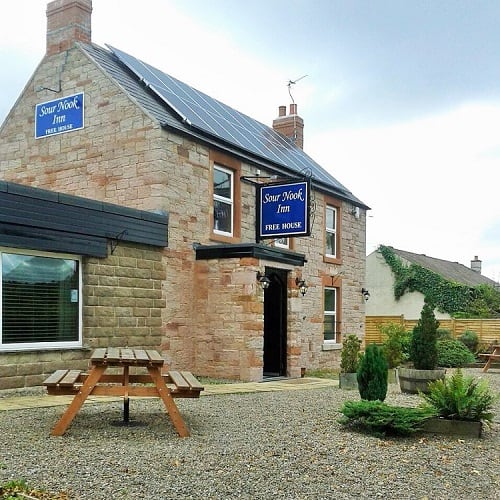
In July 2012 operators Alison and Ian Tate took on the Sour Nook Inn in Carlisle, Cumbria, which had been shut for more than a year.
In addition to recycling waste wherever possible – including returning cooking oil to suppliers for it to be converted to bio-diesel – the operators of the Sour Nook have endeavoured to turn as many parts of their business ‘green’.
“When we took over the Sour Nook, we knew that saving energy wherever possible would be a priority, not only to keep running costs as low as possible, but to be as eco-friendly as possible.
“As all the plaster in the bar and the restaurant had to come off because of major damp problems, we took the opportunity and installed insulated plasterboard. We also insulated the loft and replaced single-glazed windows with double glazing.
“As a full revamp of the boiler room and replacement of the radiators and pipework to the majority of the pub was required, we decided to install a wood pellet burning boiler, generally seen as a carbon-neutral solution, along with the latest technology in heating controls, pipework and radiators. The wood pellets are supplied by local firms
renowned for being leaders in sustainable fuel supplies.
“To complement the heating system, as the main roof of the pub is almost in a southerly direction, solar panels have been fitted, capable of generating up to 4kW of electricity. That teamed up with low-energy lighting and ultra-low energy LED lighting to the public areas goes a long way to keeping our electric consumption in check.
“Each LED lamp is only 3W – with the equivalent light output of a standard 40W lamp. With a total of 53 installed, that means we’re using 159W when they are all on, rather than a potential 2,120W.
“With regards to water usage, all the water closets throughout the premises are of low-flow design, with the urinals being ‘waterless’ – again not only saving costs, but also saving another valuable resource.”
Not just about carbon footprint
Brewer and pub operator Adnams has committed to 100% renewable energy across the business and placed a raft of sustainability practices at the core of its operation.
Environmental sustainability manager Ben Orchard acknowledges: “There has been a shift in the past few years – we are seeing more of a movement.
“In general, the main ways operators are becoming more eco-friendly is the back-of- house stuff – reducing energy, waterless urinals on the water-saving side of things and equipment upgrades, primarily in the kitchen.
“We have four focus areas – carbon emissions and energy use; water consumption; waste; and our impact on biodiversity. Under those four we come up with projects and strategies that ensure we’re acting as sustainably as possible.
“The reasons behind that are cost-saving and business resilience. We’re a long-term, family business, we’ve been around for 150 years and have a long-termist set of shareholders.
“We want to be around in another 150 years so we need to be acting sustainably.”
Orchard adds that creating a successful pub doesn’t have to cost the earth, and that implementing sustainable on-site practices can have a positive impact on a business’s bottom line.
“Publicans have begun to realise the connection between their bottom line and environmental impact – they’re putting the two together and realising there is a cost to acting inefficiently
and, therefore, unsustainably, with the obvious one being energy consumption.
“It’s a common myth that it’s more expensive too – it’s at least price parity these days, if not often a bit cheaper. Things like improving insulation in old buildings is a classic one where often it can be overlooked – roof spaces that don’t have any insulation in.
“Installing electric vehicle charging points, encouraging guests to travel sustainably to their sites – we’ve got those at six of our eight managed sites and let customers use them free of charge if they’re dining or staying with us.”
“It’s not just about carbon footprint though. Wider environmental footprint and impact are just as important – you can’t look at environmental impacts in isolation, not just carbon, water or waste, they’ve all got to be looked at together because they do interlink.”
To find out more about pubs for sale, lease and tenancy visit our property site.

